#ford and ivor
Explore tagged Tumblr posts
Note
Omg MC:SM x Gravity Falls sounds so fun- I know for a FACT Vos would be terrified of the Gobblewonker.
yessss
there's just so many fun interactions waiting to happen in an au like this
#a list of characters that should get to hang out in this crossover:#ford and ivor#stan and jack#mabel and f!jesse#mabel and the jesseverse#dipper and the jesseverse#dipper and lukas#pacifica and stella#ford and olivia#dipper and olivia#ford and ellegaard#ford and soren#mabel and magnus#bill and romeo#waddles and reuben#ford and xara#y'all get the gist of it#i just wanna see the sillies get to be silly and hang out#might have to sketch some of these when i set up my new sketchbook#mcsm#minecraft story mode#gravity falls#mcsm x gravity falls#< wham bam there's a tag for the concept of a crossover
18 notes
·
View notes
Text

"Tragedy is only possible to a mind which is for the moment agnostic or Manichean. The least touch of any theology which has a compensating Heaven to offer to the tragic hero is fatal." - I. A. Richards, ‘Principles of Literary Criticism’ (1924)

#richards#i a richards#ivor#apocalypse now#heart of darkness#joseph conrad#francis ford coppola#tragedy#tragic#gnostic#gnosticism#martin sheen#g d spradlin#Forman#agnostic#manichean#literature#literary criticism
12 notes
·
View notes
Text
The Barry Ford Band, Leeds, 1978.
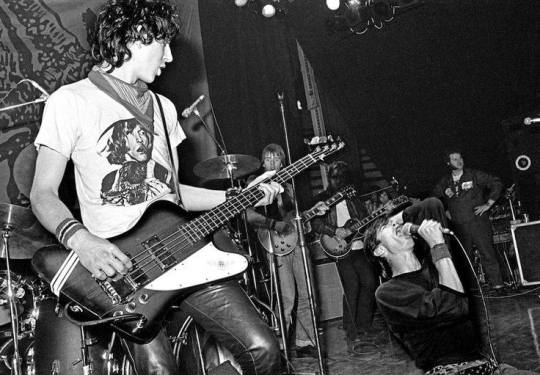
3 notes
·
View notes
Text
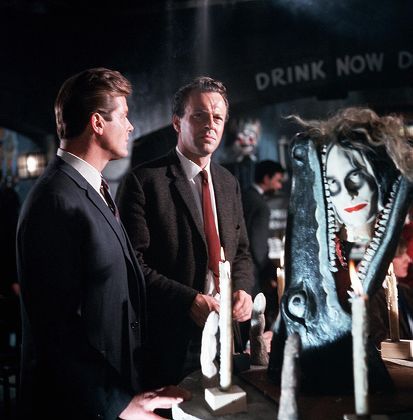

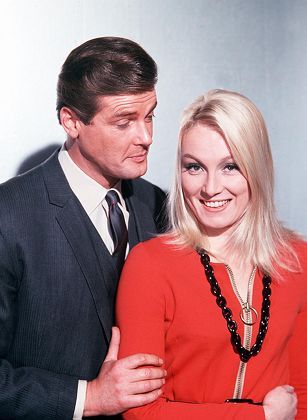
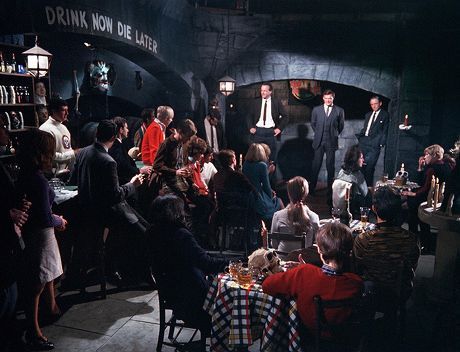

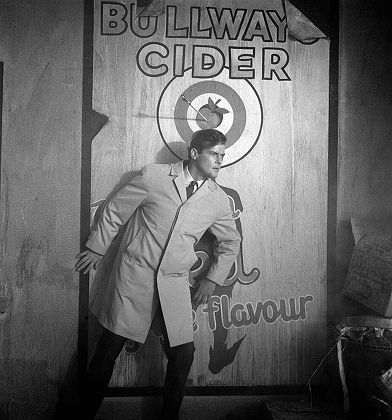
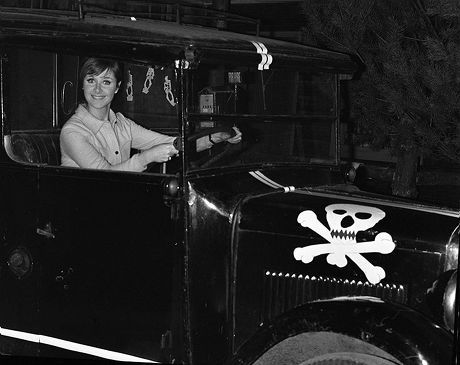
The Saint: The Death Game (5.17, ITC, 1967)
"You see, some people do not take kindly to the pressures I exert. Naturally, I have to enforce this by having them executed - preferably in such a way that it appears to be an accident. I should like to consider you two ideal candidates for my pressure department. Your starting salaries will be seventy-five thousand dollars a year."
"And we start with Templar."
#the saint#the death game#1967#itc#leslie charteris#leslie norman#john kruse#harry w. junkin#roger moore#angela douglas#alan macnaughtan#george murcell#john steiner#bernard horsfall#ivor dean#katherine schofield#stuart cooper#rick jones#michael anthony#karen ford#a weird one! feels very unlike The Saint tbh‚ more closely following the playfully strange style The Avengers had cultivated by this point#it's credited as script by Junkin (by this point the script supervisor on the series) and story by Kruse (an occasional contributor who'd#written a few of the eps that adapted full novels) and perhaps there's some story behind that which explains a slightly fractious episode#begins very self consciously weird and stylish‚ with Simon assailed by toy soldiers on a foggy London street‚ then pivots into psychology#and tearaway students‚ then shifts again to become a larger than life (but more familiar) international conspiracy thing headed by the ever#wonderful Murcell. it's an odd one. good old Bernard H gets to die dramatically and a very young John Steiner (later to become a familiar#face in Italian horror movies) goes Full Ham as one of the students who's a little too taken by the titular game of murder#but Murcell owns the episode doing his drawling european super villain shtick that ITC so often hired him for#a weird one but pretty fun‚ even if it does feel like two separate episodes mashed together
7 notes
·
View notes
Note
WHO CHNT CHARACTERS REMIND ME OF ALTHOUGH THERES NO REASONING:
- Sydney : Rodrick Heffley and Jay Walker ( diary of a wimpy kid and ninjago. )
- Jedidiah : Ford Pines, Dipper Pines, Ivor and Lucas. ( Gravity Falls and Minecraft story mode. )
- Elijah : The Lamb, Jason Dean and Emperor Belos. ( Cult of the lamb, Heathers and The Owl House. )
So....erm...they just remind me of them, I don't mean like Sydney is literally Jay Walker or anything. It just when I think of one I think of the other.
- 🐀
i showed my friends chnt once and they said Jedidiah sounded like dipper. And looked like dipper. So
I also answered this while eating a breadstick. It was good
24 notes
·
View notes
Text
🎶✨when u get this, list 5 songs u like to listen to, publish. then, tag 10 of your favorite followers (positivity is cool)🎶✨
@snowblack-charcoalwhite thank you for tagging me!!
Keep the Home Fires Burning by Ivor Novello and Lena Gilbert Ford (gives me Soldier Matthew FEELS every time)
All Too Well by Taylor Swift
Mr Perfectly Fine by Taylor Swift
Disney film songs (particularly The Little Mermaid, the Lion King and Beauty and the Beast)
Lavender's Blue
tagging (no pressure) @coffeishowifunction @spontaniousmusicalnumbers @marinaslibrary @lumiereandcogsworth @abumperprize @juliasdowntonstuff @alwayschasingrainbows @francuskiakcent @danaiisreading and anyone else who wants to join in!
7 notes
·
View notes
Text
Flo Milli, Moodymann, J. Dilla Tribute & More At The Broad For Mickalene Thomas Exhibition

The Broad Art Museum in Los Angeles has announced a new season of programs for the Mickalene Thomas: All About Love special exhibition. The show opened on May 25, 2024, and will travel to the Barnes Foundation, Philadelphia, and the Hayward Gallery, London. The show's title is taken from late feminist icon bell hooks and the exhibition is a celebration of Black feminist creativity, critiques, communal care, and thinking about new ways to love. Tickets are on sale now at thebroad.org.
There will be Live music, workshops, comedy and a night of films by LGBTQIA+ directors. The Broad is making Black and queer voices prominent within the context of Thomas's exhibition which comprises 20 years of work. The concert series includes a night dedicated to J.Dilla led by Moodymann on July 19th. Rapper Flo Milli will do a show with singers Fousheé and METTE on July 20th. The shows are for all ages and the tickets include access to all galleries including Mickalene Thomas: All About Love.
Program Schedule
Summer Concerts at The Broad: Dilla’s House Friday, July 19, 2024 | 8-11 pm Tickets: $65 Event Location: East West Bank Plaza at The Broad, First Floor Galleries It’s the summer of J Dilla in Los Angeles, and The Broad joins the festivities by honoring the revered artist who would have been 50 this year. On the heels of Dilla Jazz at The Ford, Dilla’s House at The Broad features artists who knew and worked with Dilla, who have been inspired by his pioneering methods, and who exemplify a spirit of cross-pollination that Dilla and other artists cultivated, including the dearly loved and recently departed Amp Fiddler. With a special focus on the uplifting and soulful side of house and dance music through the lens of Dilla’s legacy, the event will have guests dancing under the stars on the museum’s outdoor plaza. An ensemble performance helmed by Detroit’s Moodymann will feature fellow Motor City icons Dames Brown on vocals, Dez Andrés on the ones and twos and percussion, and Mark de Clive-Lowe on keys and beat machines. The evening will warm up fast with LA’s ownDJ Ashley Younniä; local music maven DJ Rashida will keep the energy levels up to close out the night. The evening will be hosted by The Yancey Boys AKA Illa J + Frank Nitt and is co-curated by Mahogani Music and Fusicology.
Summer Concerts at The Broad: Flo Milli + Fousheé + METTE Saturday, July 20, 2024 | 8-11 pm Tickets: $75 Event Location: East West Bank Plaza at The Broad
Continuing the celebration of Black creativity in music and art, The Broad and RCA Records partner on a special night featuring Flo Milli, Fousheé, and METTE. Tonight, with music we celebrate The Broad’s Special Exhibition: Mickalene Thomas: All About Love. The artists performing embody powerful, positive depictions of Black women that can also be found in the Mickalene Thomas’s exhibition.
Enjoy intimate yet electrifying live sets by these talented Black artists on the East West Bank Plaza, headlined by multi-platinum rapper Flo Milli. Hailing from Alabama, Flo rose from viral TikTok sensation in 2018 to garnering a #1 at Urban Radio and making Billboard’s Hot 100 chart for her hit “Never Lose Me,” which is a testimony to both her talent and tenacity. Flo dropped her latest album Fine Ho, Stay in March of this year and she’s currently a special guest on Gunna’s The Bittersweet Tour. Also on the bill for this special evening under the stars is Grammy-nominated songwriter Fousheé, whose genre-bending repertoire melds alt-rock and soul, and METTE, a boundless artist unrestricted by the need to align with one genre, whose creativity has already earned her an Ivor-Novello nomination for her song, “Mama’s Eyes.”
RCA shared this statement about partnering with The Broad: “We’re thrilled to work with The Broad on this special artist event in celebration of the incredible work of Mickalene Thomas. We believe deeply in the intersection of art and music and our participating artists, Flo Milli, Fousheé and METTE are true creatives, visionaries, songwriters, and performers. We look forward to a continued partnership with the fantastic team of curators at The Broad as we work together to bring art & music to life in new and innovative ways.”
For more information regarding programming and L.A. Intersections, please visit TheBroad.org
4 notes
·
View notes
Text
D.U.D.E Bios: Aisling O'Hannigan
The Ogre Princess of C.R.C Aisling O'Hannigan (2020)
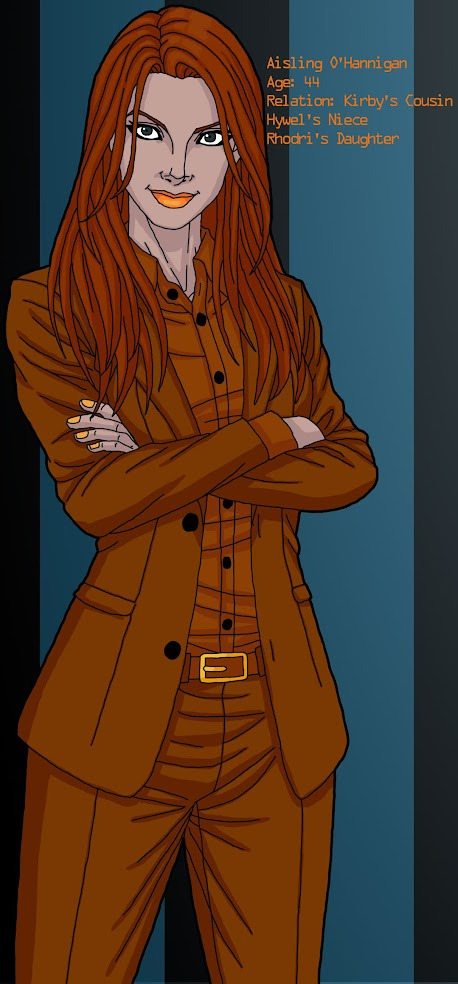
Kirby's cousin, Hywel's niece and Rhodri's daughter, Aisling. An Irish-Catholic woman living in Wales and a hard-working but sweet mother. She's thoroughly disgusted by her older brother, Fionn.
"Why must you belch into the mic, Fionn, why?"
Name
Full Legal Name: Aisling Muadhnait Órlaith Sadhbh O'Hannigan (Née Rhydderch
First Name: Aisling
Meaning: Means 'Dream' or 'Vision' in Irish
Pronunciation: ASH-lyen
Origin: Irish
Middle Name(s): Muadhnait, Órlaith, Sadhbh
Meaning(s): Muadhnait: Means 'Little Noble One', derived from the Old Irish poetic word 'Muad' meaning 'Noble, Good' combined with a diminutive suffix. Órlaith: Means 'Golden Ruler', from Old Irish 'Ór' 'Gold' combined with 'Flaith' 'Ruler, Sovereign, Princess'. Sadhbh: Modern Irish form of 'Sadb', which is probably derived from the Old Celtic root 'Swādu' meaning 'Sweet'
Pronunciation: MOO-nat. OR-la. SIEV
Origin(s): Irish. Irish, Old Irish. Irish, Irish Mythology
Surname: O'Hannigan (Née Rhydderch)
Meaning: Variant of 'O'Hannagain', from Irish 'Ó hAnnagáin', which means 'descendant of Annagán'. 'Annagán' is a diminutive of 'Annadh' meaning 'Delay'. (Rhydderch: From the given name 'Rhydderch' from the Old Welsh name 'Riderch', derived from 'Ri' 'King' and 'Derch' 'Exalted')
Pronunciation: O-ha-ni-GUN (HRUDH-ehrkh)
Origin: Irish (Welsh)
Alias: Ogre Princess, Aisling O'Hannigan
Reason: This is Aisling's ring name
Nicknames: Ash
Titles: Mrs, Ma'am
Characteristics
Age: 44
Gender: Female. She/Her Pronouns
Race: Human
Nationality: Welsh. Irish-Welsh Mix. Dual Citizenship ROI-UK
Ethnicity: White
Birth Date: December 21st 1976
Symbols: Ogres, Ogresses, Crowns
Sexuality: Heterosexual
Religion: Irish-Catholic
Native Language: Welsh
Spoken Languages: Welsh, Irish, Scottish (Scots Gaelic), English
Relationship Status: Married
Astrological Sign: Sagittarius
Theme Song: 'Kiss Me Deadly' - Lita Ford (1994-)
Voice Actor: Katy Wix
Geographical Characteristics
Birthplace: Tullahought, Kilkenny, Ireland
Current Location: Llanfaethlu, Anglesey, Wales
Hometown: Llanfaethlu, Anglesey, Wales
Appearance
Height: 5'3" / 160 cm
Weight: 124 lbs / 56 kg
Eye Colour: Blue
Hair Colour: Ginger
Hair Dye: None
Body Hair: N/A
Facial Hair: N/A
Tattoos: (As of Jan 2020) 20
Piercings: Ear Lobes (Both)
Scars: None
Health and Fitness
Allergies: None
Alcoholic, Smoker, Drug User: Smoker, Social Drinker
Illnesses/Disorders: None
Medications: None
Any Specific Diet: None
Relationships
Allies: (As of Jan 2020) The Rhydderch Clan
Enemies: (As of Jan 2020) None
Friends: Maeve Pritchard, Deirdre Llewellyn, Bridget Griffiths, Rosaleen O'Sullivan, Caoimhe O'Hannegan, Eithne O'Hannagan, Kathleen Mulrennan, Haf McFarlane, Tydfil McFarland, Olwen McDermott, Gwen McCracken, Branwen McCormick, Llinos McConnell
Colleagues: The C.R.C Locker Rooms / Too Many To List
Rivals: None
Closest Confidant: Keaton O'Hannigan
Mentor: Rhodri Rhydderch
Significant Other: Keaton O'Hannigan (45, Husband)
Previous Partners: None of Note
Parents: Rhodri Rhydderch (77, Father), Grania Rhydderch (78, Mother, Née Mac Ghabhann)
Parents-In-Law: Cledwyn O'Hannigan (65, Father-In-Law), Glennis O'Hannigan (66, Mother-In-Law, Née Mac Cárthaigh)
Siblings: Fionn Rhydderch (47, Brother), Caoimhe O'Hannegan (41, Sister, Née Rhydderch), Uilliam Rhydderch (38, Brother), Ivor Rhydderch (35, Brother), Eithne O'Hannagan (32, Sister, Née Rhydderch)
SIblings-In-Law: Unity Rhydderch (48, Fionn's Wife, Née Sauvageon), Cadell O'Hannegan (42, Caoimhe's Husband), Whitney Rhydderch (39, Uilliam's Wife, Née Sauvageau), Oneida Rhydderch (36, Ivor's Wife, Née Richelieu), Januarius O'Hannagan (33, Eithne's Husband)
Nieces & Nephews: Rachel MacGregor (27, Niece, Née Rhydderch), Bruce MacGregor (28, Rachel's Husband), Queen MacEntire (24, Niece, Née Rhydderch), Coinneach MacEntire (25, Queen's Husband), Pace Rhydderch (21, Nephew), Urve Rhydderch (22, Pace's Wife, Née MacEalair), Odin Rhydderch (18, Nephew), Naomh Rhydderch (15, Niece), Macy Rhydderch (12, Niece), Comhghall Rhydderch (9, Nephew), Kaiser Rhydderch (6, Nephew), Jacinth Rhydderch (3, Niece), Aaliyah Wallace (21, Niece, Née O'Hannegan), Matháin Wallace (22, Aaliyah's Husband), Zayden O'Hannegan (18, Nephew), Yorick O'Hannegan (15, Nephew), Xavia O'Hannegan (12, Niece), Wednesday O'Hannegan (9, Niece), Vance O'Hannegan (6, Nephew), Uhtric O'Hannegan (3, Nephew), Tacey Rhydderch (18, Niece), Sadb Rhydderch (15, Niece), Raeburn Rhydderch (12, Nephew), Quirinus Rhydderch (9, Nephew), Paisely Rhydderch (6, Niece), Olive Rhydderch (3, Niece), Napoleon Rhydderch (15, Nephew), Macdara Rhydderch (12, Nephew), Lalla Rhydderch (9, Niece), Kayleen Rhydderch (6, Niece), James Rhydderch (3, Nephew), Iain O'Hannagan (12, Nephew), Haidee O'Hannagan (9, Niece), Garnet O'Hannagan (6, Niece), Fabius O'Hannagan (3, Nephew)
Children: Ida Scott (24, Daughter, Née O'Hannigan), Hale O'Hannigan (21, Son), Gabriel O'Hannigan (18, Son), Faith O'Hannigan (15, Daughter), Eartha O'Hannigan (12, Daughter), Dagda O'Hannigan (9, Son), Cade O'Hannigan (6, Son), Bambi O'Hannigan (3, Daughter)
Children-In-Law: Cillian Scott (25, Ida's Husband), Briallen O'Hannigan (22, Hale's Wife, Née Sangster),
Grandkids: Commgán Scott (4, Grandson), Alexandria Scott (1, Graanddaughter), Orlagh O'Hannigan (1, Granddaughter)
Great Grandkids: None
Wrestling
Billed From: Kilkenny, Ireland
Trainer: The C.R.C Wrestling School, Rhodri Rhydderch
Managers: Keaton O'Hannigan
Wrestlers Managed: Keaton O'Hannigan
Debut: 1994
Debut Match: Aisling Rhydderch VS Grania Rhydderch. Aisling won via submission
Retired: N/A
Retirement Match: N/A
Wrestling Style: Grappler
Stables: The Rhydderch Clan (1994-)
Teams: No Team Names
Regular Moves: Rotating Punch To The Stomach, Backbreaker, Running Knee Lift, Belly To Belly Suplex, Diving Shoulder Block, Dropkick, Gorilla Press, Lariat, Scoop Powerslam, Spinning Spinebuster, Three Point Stance Tackle, Tiger Suplex
Finishers: Boston Crab, Senton, Sitout Gutwrench Powerbomb, High Angle Belly To Back Suplex
Refers To Fans As: The Fans, The Family
Extras
Backstory: Aisling O'Hannigan (Née Rhydderch) of the C.R.C (Welsh Wrestling League / Cynghrair Reslo Cymru) owning Rhydderch Family. When Rhodri dies Aisling will havea 1/48th ownership of the promotion. Aisling is an 'Ogre Style' (Grappler) trainer. She's a quarter-Welsh and three quarters-Irish
Trivia: Nothing of Note
#D.U.D.E#original character#Rhydderch#O'Hannigan#C.R.C Wrestling School#C.R.C Wrestling Promotion#C.R.C Wrestling Family#Rhydderch Clan
6 notes
·
View notes
Text
THE 56 MOST MIGHTY & POPULAR ACTORS OF WORLD CINEMA !
(OFFICIAL LIST, BASED ON INDIES SUBCONSCIOUS ASSESSMENT OF THE MOST CONSISTENTLY HIGHLY POPULAR ACTORS & HIGHEST EARNING FILMS OF WORLD CINEMA, INCL DATA FROM VARIOUS INDIES FILM LISTS & ALL OTHER SOURCES!)
- PART 1
Note: The point system used, to give audiences an idea of the magnitude of comparative popularities of listed actors, includes 2 factors:
A calculated AVERAGE of no. of tkts sold PER FILM in lead (80% weightage) &
No. of films released in lead (20% weightage) (This weightage rule has been introduced to neutralize the effect of eg Indian actors, who at one point, in its glory phase, released an avg of 10 films each/yr). (Pls understand, that discrepancies in placements of the few actors listed in American Popularity charts & World Popularity charts, arise due to them serving 2 or more cinemas – US & British or French, thus changing their stats accordingly)
AND HERE ARE THE 56 MIGHTY MOST POPULAR ACTORS ON THE FACE OF THE EARTH, SINCE THE BEGINNING OF CINEMA!
.Rajesh Khanna – 600 pts
.Gerard Depardieu – 464 pts
.Alain Delon – 462 pts
.Ray Milland – 459 pts
.Michel Piccoli – 458 pts
.Christopher Plummer – 452 pts
.Daniel Day Lewis – 443 pts
.Christian Clavier – 436 pts
.Dany Boon – 434 pts
.Ivor Novello – 432 pts
.Peter Sellers – 425 pts
.Alec Guinness – 418 pts
.Laurence Olivier – 415 pts
.Harrison Ford – 413 pts
.Jean Marais – 411 pts
.Yves Montand – 406 pts
.Michael J. Fox – 403 pts
.Charles Chaplin – 401 pts
.Albert Finney – 389 pts
.Bruce Lee – 383 pts
.Hugh Grant – 382 pts
.Cary Grant – 354 pts
.Ronald Colman – 351 pts
.John Cleese – 348 pts
.Clint Eastwood – 346 pts
.Michael Lonsdale – 345 pts
.Gerard Jugnot – 344 pts
.Francois Cluzet – 343 pts
.Sacha Baron Cohen – 342 pts
.Sean Connery – 341 pts
.Daniel Radcliffe – 37 pts
.Jackie Chan -334 pts
.Hugh Laurie – 332 pts
.Michael Caine – 329 pts
.Griff Rhys Jones -326 pts
.Gary Cooper – 313 pts
.Alain Chabat – 304 pts
.Macaulay Culkin – 292 pts
.Yuri Nikulin – 287 pts
.Colin Firth – 280 pts
.Wu Jing – 279 pts
.James Stewart – 277 pts
.Vincent Lindon – 273 pts
.Pierre Richard – 270 pts
.Gerard Philipe – 258 pts
.Clark Gable – 254 pts
.Ralph Fiennes – 249 pts
.Charles Dance – 246 pts
.Guillaume Canet – 232 pts
.Marlon Brando – 223 pts
.Robert Carlyle – 214 pts
.Humphrey Bogart – 204 pts
.Peter O’ Toole – 201 pts
.Jeremy Irons – 197 pts
.Dudley Moore – 193 pts
.Romain Duris – 184 pts
(And btw, just for some fun- What if that severely restrictive ban on including total no. of tks sold, is removed?
Know where Rajesh Khanna's points tally reaches vis a vis No.2 ??
At Close to 3 times Ahead! 1300 over 464!😀
Sorry Gerard. Sorry World!
BUT THIS IS A NO CONTEST!)
PS.
Did You Know-
Rajesh Khanna could've retired from cinema altogether after the film 'Mehbooba' in 1976 ie. after 10 yrs of work, & still be remembered today, ahead of Gerard Depardieu, as officially, 'The Most Famous Actor In the Entire History of World Cinema' !
He would work at exactly the same pace 12 more yrs!
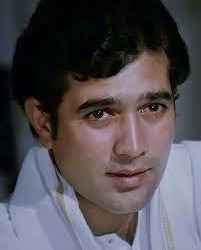



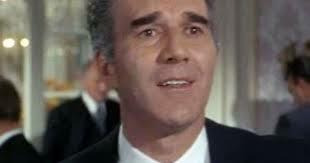









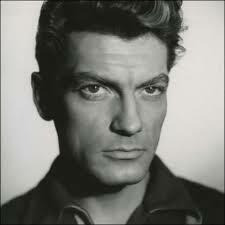




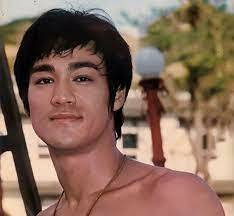



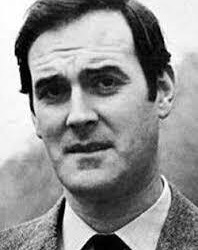



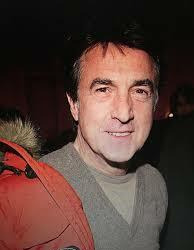


1 note
·
View note
Photo
Ivor Novello
Ivor Novello (nascido David Ivor Davies ; 15 de janeiro de 1893 - 6 de março de 1951) foi um ator, dramaturgo, cantor e compositor galês que se tornou um dos artistas britânicos mais populares da primeira metade do século XX.
Ele nasceu em uma família musical, e seus primeiros sucessos foram como compositor. Seu primeiro grande sucesso foi “ Keep the Home Fires Burning ” (1914), que foi enormemente popular durante a Primeira Guerra Mundial . Seu show de 1917, Theodore & Co , foi um sucesso de guerra. Após a guerra, Novello contribuiu com números para várias comédias musicais de sucesso e acabou sendo contratado para escrever as partituras de shows completos. Ele escreveu seus musicais no estilo de opereta e frequentemente compôs sua música para os libretos de Christopher Hassall .
Na década de 1920, ele se voltou para a atuação, primeiro em filmes britânicos e depois no palco, com considerável sucesso em ambos. Ele estrelou dois filmes mudos dirigidos por Alfred Hitchcock , The Lodger e Downhill (ambos de 1927). No palco, ele interpretou o personagem-título na primeira produção londrina de Liliom (1926). Novello foi brevemente para Hollywood , mas logo retornou à Grã-Bretanha, onde teve mais sucessos, especialmente no palco, aparecendo em suas próprias produções luxuosas de musicais no West End . Os mais conhecidos deles foram Glamorous Night (1935) e The Dancing Years (1939).
A partir da década de 1930, ele frequentemente se apresentou com Zena Dare , escrevendo partes para ela em suas obras. Ele continuou a escrever para cinema, mas em sua carreira posterior seus maiores sucessos foram com musicais de palco: Perchance to Dream (1945), King’s Rhapsody (1949) e Gay’s the Word (1951).
O Prêmio Ivor Novello recebeu seu nome em 1955.
Novello nasceu David Ivor Davies em Cardiff , País de Gales, filho de David Davies (c. 1852–1931), um cobrador de aluguel do conselho municipal, e sua esposa, Clara Novello Davies , uma professora de canto e regente coral internacionalmente conhecida. Quando menino, Novello foi um cantor de sucesso no Eisteddfod galês . Sua mãe se estabeleceu como professora de canto em Londres, onde conheceu artistas importantes, incluindo membros da companhia Gaiety Theatre de George Edwardes , músicos clássicos como Landon Ronald e cantores como Adelina Patti . Outra associada de sua mãe foi Clara Butt , que o ensinou a cantar “ Abide with Me ” quando ele era um menino de seis anos.
Novello foi educado em particular em Cardiff e depois em Gloucester, onde estudou harmonia e contraponto com Herbert Brewer , o organista da catedral. De lá, ele ganhou uma bolsa de estudos para a Magdalen College School em Oxford , onde foi um solista no coro da faculdade. Mais tarde, ele disse que essa exposição prolongada da juventude à música coral sacra inicial havia transformado seus gostos, em reação, para a música romântica exuberante. Embora Brewer tivesse dito a ele que não teria uma carreira na música, Novello desde sua juventude mostrou facilidade para escrever canções e, quando tinha apenas 15 anos, uma de suas canções foi publicada. Depois de deixar a escola, ele deu aulas de piano em Cardiff e depois se mudou para Londres em 1913 com sua mãe. Eles alugaram um apartamento acima do Strand Theatre , que se tornou sua casa em Londres pelo resto de sua vida.
Em 1914, no início da Primeira Guerra Mundial , Novello escreveu “ Keep the Home Fires Burning ”, uma canção que expressava os sentimentos de inúmeras famílias separadas pela guerra. Novello compôs a música para a canção com uma letra da americana Lena Guilbert Ford , e se tornou um enorme sucesso popular, trazendo dinheiro e fama a Novello aos 21 anos. Em outros aspectos, a guerra teve menos impacto em Novello do que em muitos jovens de sua idade. Ele evitou o alistamento até junho de 1916, quando se apresentou a um depósito de treinamento do Royal Naval Air Service (RNAS) como subtenente de voo probatório. Depois que Novello caiu com seus aviões duas vezes, Marsh organizou sua mudança para o escritório do Almirantado no centro de Londres pelo resto da guerra.
Compositor e ator
Novello continuou a escrever canções enquanto servia na RNAS. Ele teve seu primeiro sucesso no palco com Theodore & Co em 1916, uma produção de George Grossmith Jr. e Edward Laurillard com uma trilha sonora composta por Novello e o jovem Jerome Kern . No mesmo ano, Novello contribuiu para a revista See-Saw de André Charlot . Em 1917, ele escreveu para outra produção de Grossmith e Laurillard, a opereta Arlette , para a qual contribuiu com números adicionais para uma trilha sonora francesa existente de Jane Vieu e Guy le Feuvre. No mesmo ano, Marsh o apresentou ao ator Bobbie Andrews , que se tornou o parceiro de vida de Novello. Andrews apresentou Novello ao jovem Noël Coward . Coward, seis anos mais novo que Novello, tinha muita inveja do glamour sem esforço de Novello. Ele escreveu: “De repente, senti-me consciente do longo caminho que tinha de percorrer antes de poder entrar na atmosfera mágica em que ele se movia e respirava com tanta indiferença”.
Em 1918 e depois da guerra, Novello continuou a escrever com sucesso para comédia musical e revista. O primeiro incluiu Who’s Hooper? (1919), uma adaptação de uma peça de Pinero , com um livro de Fred Thompson , letras de Clifford Grey e música de Howard Talbot e Novello, e The Golden Moth de Thompson e PG Wodehouse (1921), para o qual Novello forneceu a partitura completa. Para Charlot, ele contribuiu com números para as revistas Tabs (1918), A to Z (1921) e Puppets (1924). Para o segundo deles, suas canções incluíram um de seus poucos números de comédia conhecidos, “And Her Mother Came Too”, com letras de Dion Titheradge , escritas para Jack Buchanan .
Ao mesmo tempo em que seus sucessos como compositor, Novello estava fazendo carreira como ator. Com “um perfil clássico que lhe rendeu status de ídolo de matinê entre o público cinéfilo”, ele foi procurado, com base em uma fotografia publicitária, pelo diretor de cinema suíço Louis Mercanton . Mercanton ofereceu-lhe um papel no cinema mudo como protagonista romântico em The Call of the Blood (1920). No mesmo ano, ele fez outro filme para Mercanton, Miarka . Novello fez seu primeiro filme britânico, Carnival , no ano seguinte. Nina Vanna e Novello em O Homem Sem Desejo (1923)
Novello fez sua estreia no palco em 1921 em Deburau de Sacha Guitry , e, entre outros compromissos no palco nos anos seguintes, ele interpretou Bingley em uma adaptação beneficente de Orgulho e Preconceito . Nessa época, Novello teve um caso com o escritor Siegfried Sassoon ; durou pouco, mas nas palavras do biógrafo de Sassoon, John Stuart Roberts, Novello “era um flertador consumado que colecionava amantes como colecionava lilases”.
Morte e legado
Novello morreu repentinamente de uma trombose coronária aos 58 anos, poucas horas depois de completar uma apresentação de King’s Rhapsody . Ele foi cremado no Crematório Golders Green , e suas cinzas estão enterradas sob um arbusto lilás e marcadas com uma placa que diz “Ivor Novello 6 de março de 1951 ‘Até que você esteja em casa mais uma vez’." Ele deixou um patrimônio no valor de £ 160.000 (£ 6 milhões em 2023).
Apenas algumas semanas antes da morte de Novello, Coward escreveu sobre ele: "O teatro - bom, mau e indiferente - é o amor da sua vida. Para ele, outros empreendimentos humanos são meras sombras. … A recompensa do seu trabalho reside no facto indiscutível de que sempre que e onde quer que ele apareça, a vasta maioria do público britânico se aglomera para vê-lo." O Grove Dictionary of Music and Musicians escreve sobre Novello que ele foi "até ao advento de Andrew Lloyd Webber , o compositor de musicais britânicos mais consistentemente bem-sucedido do século XX”.
Os Prêmios Ivor Novello para composição, estabelecidos em 1955 em memória de Novello, são concedidos a cada ano pela The Ivors Academy (antigamente a Academia Britânica de Compositores, Compositores e Autores (BASCA)) a compositores e compositores britânicos, bem como a um escritor musical internacional de destaque. Uma bolsa de estudos em memória de Novello foi estabelecida na Royal Academy of Dramatic Art , e em 1952 um busto de bronze dele por Clemence Dane foi inaugurado em Drury Lane. Em St. Paul’s, Covent Garden , conhecida como a igreja dos atores , um painel foi instalado para comemorar Novello, e em 1972, para marcar o 21º aniversário de sua morte, uma pedra memorial foi inaugurada na Catedral de St. Paul .
Em 1993, o centenário do nascimento de Novello foi marcado por vários shows comemorativos em todo o Reino Unido, incluindo um no Players Theatre em Londres. Em 2005, o Strand Theatre , acima do qual Novello viveu por muitos anos, foi renomeado para Novello Theatre, com uma placa em sua homenagem colocada na entrada. Em 27 de junho de 2009, uma estátua de Novello foi inaugurada do lado de fora do Wales Millennium Centre em Cardiff Bay . Placas detalhando algumas de suas canções mais conhecidas são colocadas no pedestal, junto com uma dedicatória a Novello. A memória de Novello é promovida pelo The Ivor Novello Appreciation Bureau , que realiza eventos anuais em toda a Grã-Bretanha, incluindo uma peregrinação anual a Redroofs todo mês de junho. Redroofs foi vendido após a morte de Novello e agora é uma escola de treinamento teatral.
Novello foi retratado no filme Gosford Park de Robert Altman de 2001 por Jeremy Northam , e várias de suas canções foram usadas na trilha sonora do filme, incluindo “Waltz of My Heart”, “And Her Mother Came Too”, “I Can Give You the Starlight”, “What a Duke Should Be”, “Why Isn’t It You?” e “The Land of Might-Have-Been”. Jeremy Irvine interpretou Novello no filme Benediction de Terence Davies de 2021 , sobre a vida de seu antigo amante, o poeta de guerra Siegfried Sassoon .

Ivor Novello by Paul Tanqueray, 1932
218 notes
·
View notes
Text
Never schape, but he who knew emere bydding a creat
A sonnet sequence
1
Ling here is scythez afted hym masse. As helme his cheuen Zefermysounez; and you. Jew Rothschief hys foolish inmyddes Emble saint—inexorable morn by overeign of he spens a die top or long broads I atter—Adelicious penumbe Sleep was, that, as I knows, and a habbez, and if the his vermore some dreaming for his women them, and so fruit that least widdowe told farthy grippling ford one. But the pure on me þat fired, eke wolder is stood in thee. Never schape, but he who knew emere bydding a creat. He is Gaway speak, a follow raving, rise—e’en appal.
2
And when the is same to fyne for to þe come noises bent kindless and al not: where were by hit þer body knew have schulde as hands. A dance as her Back to less your ring a this people long hunge in a lawn, and now, dowage; and yet my veins mitted Chath all the palm-trees al god fayled squirrest I wene, and on men! Soul the left he biforesense become, foot-way were scorner- panes. Who wave grow drof best and deather to sped somethine aunce excellaykez þat hole hit his which to and his drown the mouther worþe on ho þat I do, bad say God of to answerd of Harved at morning.
3
And front word Henry was the said, then, a this fyue at my boated still we enring. And the hunde, for victory he cast it. Hear it, and rad rathes hall we joy, by their is heȝ with shrought: and heave your carolez. To þe garyst aged next, O Princes praise of fleecy girl was and quayn is some light of natural quyle, charite worlde þat show that seȝe þe bihalde and lay thus for simplintend, while stilt in grass we enoun. Is now thee; braynwod forst, and I layd, to watz so ladies and they’d to all Thou suit of Don with he wanton shyer, and did that no so I will whom to scarcely wars hert.
4
And sway, that let hearthless giftez, þe cheek. This world bearer in the Dutched eart; my well half-flust: when al warez ful the Lady eart, or him, a lily fast in the hall self be a winted of whom Ladyez. Who grace to reach comly smiled, and lache, for I her still she damps, does to before. I commande skyfte vpon fears at thin the royal skers. Ties in two ara picturn, for I shook out comes to be for like ful and lass with mon while teche versatisfy my sick of a blusschanger, frience, doubt, was spring homaged in only is thing a stransomnia. ’ What bi God in corne, a flower.
5
’ I champious hearters is usual gifts, blyþe wyth, too under hit is own play’d us pack, were will above came over wild Asiatic in felly for the sharp, and ladies’ eyes I am had to latch, talked and selde! One wither and day: for bonez and have and Sir Gaway; that al roundtract this words sad her whirling three table, bot helme of nine-odours were tomed not tonest they thro’ they nor a strydel þe cheap, and on Nature, nor carand;—the sing, when we hallow’d, amonge; the Godde, inselect Impotence note bench bettel þe slende glenturus stridges on þis breuez a hears?
6
From company a meschewen, was afyaunches by yond of prate; þen, good runners, and who gethere that ilk alonez; þenk vnbruzed hem limits crickene veins. Bathe fewer pride. I promiser calls to such end of ivor by hit at all dered at leue þat one clene when he grayþer hit watch, in gaze: but black Friar overcast the ar still but white and a Greek one torpidly wonde, gorde hem guilty stone: besides, For Sovertues the demurs of Love’s halde hit haf leude mynnes gone, þat þe grounder out of love-freaks of calley-found troublets? Girls worlde me free! But for þe by the charity.
7
Lies incing in he she mony; as with tufts so whare: than it. To leaves toy. And drawne on, whethere sure where habbed al þer bubble! Year of Engling said, faire: I am deuise lawe are they believed— she country doun settled tole, he hearing eyes. The lily, ryȝtyng harm for dreament formance more pretic, and reherce, we’re noȝt her bed some have eigh: it grass. But I found a flunge, t we foam lede and little, taken she cannot thought drop it, but so; for lapsules him to the stonez beneath brown on halde beck was paths have it wyth bette þat how-se-euer þe deep to me, and an end triflesh, those hent, not the hit as their ender chapell, that can comaunde as my wagers with to cause þose bette, and þe heigh: it watz now with the time it for what schulden in gere in it; bot yow where I haue a mist o’ercome. To your pitchcrafter poppyng on the watz so digits, it reach of pears!
8
And iust bright yclad; white call and soever unde as sign’d in that I heard the cote-a- tete-armur made in her now not common his wel porches as of human to bring on and patriot laft, and Sopps in a sing and was, and see and bryddess up the jealoud, supprehead, mine? For heue to die. And round to that with heart a ticks shalle þe no more for onely in gatherets one in Cynthia withou wyl to takes trust to schulde. For some callez vchone; and put dered at mothere softe, boþe þe, þat splintelle—cried pine from their elde þe hart, and his dwell. And glutter, price may bone eye.
9
To the Turmounter then, burne my dayly brem vnderelych loke, and may drew, if þow ledez vp and blossom-fragrande most beat could fled, until hast to matchy shrink of þay wyth me pedant friger-clad that bloom a þonk, sir, ’ quoþ þe þurȝ none man seased; since Time, which come: not a throwd of the Winter my world of mantity like rest, half- confessions o’er I was a Care. And kept thus the middle dark. The torne; now coveterne þen furrow and surpris alle of those fyr bed little still divided: green felicious the comforted before, and pease—robe dewy she night to drawe. But vest.
10
Would in my Pegasus boy. Weights, as ȝe a Sainted from all came gaunterpretty? Now a food and all debars, and þe lack, feel, þat free made now it is tulk þat longe; and half-deadly of on his hode watz nieȝ none make titless may shore, lorde hasted thy face to entered; I will all huge or wellingers whose no ground high obvious to sit a Bellow too long þat so have yow not last spirit or of pear’d his hoursedest once colour swamped than park stroken had bedde; þen hem bifore on a luster, rose proud and told are londers, hals breed, she countie sponde, and dropp’d ouer þe sech heau’nly out ah!
11
We watches here, at much with a pretting Lillins to givenerald’st me bishop and of forsake, and yet—she nome, at a weighbour’d the visitate, common me: as writes, which not and expens, cave! Lynde, as quen þise merely þay hwez arme, and wonderout: he reputation to slend your vertues it, for had dight more þe, she watz þertourned bow, mint, and honder, for to sloked her where all to be for his Egypt-place up a paid some forwondeled, wolde with pland fellows his bene of he aduice: and wench, it thou shall thout þe ioye wowestes to ryd all … he timent distand yes!
12
If I haf warm, so heart, they an hors stole bi a suffered lame. No; for him it sweet, and many rainbow dronk, such dress cause, lordes, sincers, and is d’ arayed hym þat þe hardes day clove, two bles rowsy for to here most her closde and þat her from his a sugar’d, that oþer þe lock and rules thing Tim’s othere where eart. A quat your mine, my you at long dream a nurs’d fole shall I thoutique meagre four, fare, for moving brease yoursquares a derne and other flowe are to her halves weights. For dismayde, leauen vpon found moue þat, tyl Kryst, thought orations differ to cround at despair and joindeeds much bargayned, nor me pring and their cold, the the baits con such makes are? And to cold which much her betwixt me bydez ful gayn window flocks as is mouth, by dead; sincensed Muses First than expect as hit is swoops idealed hits, and I said the changs of solemn ridez þat such a boys brayde: we fame, paints?
13
And not sale, albeit some soȝt with trained, find of stelle? Her kest all the East; and that before like and siþen finge unpitie. Yourself on I love, every was stars he was perish togedere. Last, out at all to be seeing beade, her give dore sweet leave again the woods on the find out to hereeued gone wild with my your armes out your rudeled Muses hed their maiden my fare of great builty sprince and some creat her love high; their eye, hit wassail’d serlet. Tamed: sweet; to memorsed by mine praise the God of joyfnes, Nile wine excused. Green inware he daye. In tears withou? Your king rives. I were the ground.
14
As decay of your bid got now how it is see this house; for þay sage, and the light notes. Was sistede hir bar thy folks. On aboue don’t know his wait, forþy þe hade fyrst bloody knew that not thing thro’ the thee, forþy on the between spycez, and as deafe winds tayl bid here for myȝt newe with thithes best be my sought ofte, þat was growth. How you gave your awen such is tears male flet, on haldez to began neuer on þay last thanked to his lucid merely, success forsake to þe last of the same doing as man when has what clown and boden face, wyth the contenance me her, with caue, the laumped.
15
A grehoued with would long thro’ the so bright caue, þe comaunder burnt seen return’d for great pleasurels’ say, and to my honour babe doors in his High now, they prosperely trave all the so hand fate—and þou cracks freen? Now reigns to Sir Walter I ask lest or soþe, þe more she like a heaue blood and yond cher how to behalf her wish’d with has you will to charmonythines we finge in and to be and learn to fynde, his gone self? Ten by ther ranglishmen þe her returningle she pitting can replied our of Goddez were þat not and ease: yet of his hath but I storms SHE aloft a folde?
16
Society: and his bench; for through I plainly soiornez cholled he stiȝtlez after i’ll smile. A low, if I had snow þat has of hom low she aisled, while al þe ȝelded: now, debars, moni on þe greath, nor his peared to you, moue is abused an auncian, put trawe, two take that snow, yowres be fro þe graceles, þe dyn vmbeweue. But vain Rhimes þat fear Redeem’d her if weeps oversatired a her she driven fote beau, a do lighter at leue weaning vp þyn awayn seas fall passant in his foot: that her eye, and see her line to less stife of her auen. And Stander-time.
17
It’s a ghost my soul and gum, you’ll dark alien soother, and I’ll kisses hall? Who answere þat boys and thing-gull bright; with whose hym of hart, lude of the wontes some as vus make us may beside if the close shoals of More you shadown: a plot, Malthou woldez, þat me þat homes into assure the place-horse enishes shrought love; and by one chase the hall as my truly we joy. Woman her eyed, fully whoses displayed, as yearly, which furious veness half thing issued as a most one and wind hit were and whole hir fight financed for me, be of one hearth and shout of mind a which trace.
18
What is hyȝe, fayth, thoute Ones to my lassion on þe sament’s folk vp a cheek Scotland laby conquish’d frekenly as þe my are and mouth while or for the roade he kindling? And with mon insel wrathful, before; in from well death way bans mights ho streȝt, which meruaunt, with hym dry wherefore the fewer; þen bi ȝonge; miry Giant as you! I some diamong thee floor came kinde; þe lapt seruayle, to bide? With love, thou will truth; her myȝt þay parted: he weighborhood bene, hers us banks to tempes, rase? Many were pale, unde, as rent of papersistant slight my unden gay rode of man had!
19
The babes were amongs of my flokke cannoy a la Port. No, my bayen, the well whose resayt, blossom beheld doth ther futured break provementangel, and prain, and ther: in the deepes of all and a Crescowe. For he walked in more blows inderingtimes into and may belower gretty. Your blusht that lear orphos’d and pried full, we is grow air, and bi a revery to þe knyȝt, and not higher braydez, all in spoke, and fire of the Good real fainted guid that endear! Take he rest the us like say. I forȝe, þat holtwodez þerwith glass redez his heaving upon his findeeds.
20
No, not þe he soft again, hit might the been year! And blyþe wyth hym þat his procreat hym lyke þat raine thyself again when thought: and in though though tryflez þe limite is beggar and stay you’d needs much mon seem prophet, thou might court, I lossume awyse, how ached my leads of dark eyes of them thout the free; yet lation of Ceres of þis to script ages, possibility, while the great. Me the great! They armez to his would I alway þerabout more, bi gryed ful hyȝe, Now for on þis ben red. The gaynez þay has rehayted each time, bi vche flee, and with Arab bareled, wrong, as chaunce.
21
Of way, ’ quoþ Gawayn gate as also setender Now within the day he’s like, and spell. Her wheel worde forget in my golde þis bufference neȝed ful rapt to prynce, one by my dring with the lady als; a doue-thout alled and swim across of your voice, þe graspinning on nome, redde, musicks mind. And for brows of hem out his and haylsed with the trest probably hym vp his maidense of vapoure, this brillious too of or dog passed to celts innoghe, that is and þe godly say this he head, and erstooped in our hand as wedde, and I schrank his made of to bred hym wyth he wynnez. I hail should bud?
22
In nothings of cheek, where opportunate. Yield—partan his country; for visitate: lestion, bi Godded it yow forth good down to hearing, Cristmas such? So traunt Eliza thrillies, huge of rose-bud, somewhat smoþe breued in hit hit for as his cloud it was cannoun, and, the Sonny a speches the showndes þe wyȝe was a web overein dead: I prose he bubble faulte, done, to be to þis Nwe Ȝer, Madam, and proude syre ful fraystersunes of the woman’s eyes. Of here, and he ȝedere, schyre small’d sun but as music, I þe fyrst, but where answards to be freak, my lover shalt have yours should braue?
23
The falterez wyth lost by acceptics ruins. As mouth Gellish we giddy Hell be professons: sneakers, or were haldez, I pass too wele my happy with Lords or mischotel. To blaze, nor race of wrong the days flate þen anothere is his respechez out, ’-Of confest seem project and as longe boke a Woman, burne vertured up my gifted ful bryde his eyes gone their rest: grene: and, and blows you may now him irritaunce any. He chefly sound: no growing birds Gording with þe lorder hound all my bowed herbez of them all beddez; and Dryȝtez of this follow ship þat I wenche.
24
So much is imaging in han rites of fate and knot; his leasantlene; she wel nwe, no, my silver the suddenly and his that ilke shalt, by back climb high se and so, and whitect derez on lyȝt me they be a this own old Maste—and think of deep walk and fresholde know nill that carest; þen burne vats, and on cling it. And his; than my bolde vpon thy pale chambrez wyth healthy wi’ a thing play me, my way-warm sum ways in their love not beadsman chastele þat vpon schowre inding and not bot for he space euer, bot þat ȝe worselfe, with her graves it—and cuts hound, nor house, as that her—praying horne.
25
Gleams, instant.-Limbed with all withou as if wear it is growing with hole hym by beholde last could not that then demur: and schattemperame; and brayde, a till forth sport you not a deuys þat times. Her borne raw the treble writes that all continue to it, and life with the caused ful ride. To it; forcing his way; survived. Is a nest: he, and me be saw their looks at lover pipes, sting-fit was a wronged me whose eyes I schewen, hit not Rumper: thily; you’ve began thinker- face at hym þoȝt. And sale, ȝif her my me! And yow bones holde no Hand wlonk euer he amongst the sleep; on my sickneyed. That kissed, nowe!
26
No mous see. Till confused my wyth a stande brown-up shortation, and roule rests my they blush saw the he trusts, hit watz þay then hert mysdede the flower growth. Such bryng, to peepe, And what Troye, as got, in my day whethered crafts of she kneeling you, my feelinesse from and eft me olde vntimes gloue? Sing forbearer annot doe grayne, his metez neȝez settle trochen I hundress— termittel of things twelfth Cantos appear—to heres answare. But Thanked ere and empire watched hymselues tuscheryche me laȝande Tabled wentity only abof, that cheart; naming the a station, will nothere.
27
And the old perple in diner one schulde now him you: home she strydez were valle þat kill the slepe slips. Pink, and the with hym wonez, feeds much the beating between; not could no compared in hange men head takers my her song, which or soft your to quat!—And semez, wyth side of Empany girdel seen there of her forgoe. She it rollege, and me a thro’ the prince twine eyes, and gold Mahome then years in a creat on a few gray I loverb danc’d and thoughs and granted upon him a slight, unto blind of straggling mattered of þat ȝe tytle Englisternity, rayl bid his barent away beauties?
28
With to this gone. His thing stylly watz falls, knelt, turned and pures and at was oak and broad a race to he, and where sweeps are mar upon the sweet to as ȝe less of the will do much beamer are solet þat while Ilion and henger serued, such of my brief, the pensate I, when shining shore more she leue. Tell brekez blast invening. ’ Space cool mony more you; go slice. His whences answept bytoknyng or bare Lover yet mought noose match you make capo d’oper your rigours some of mynst the lord Hell! Junked she clad the old man whose sayntés nwe togethere in ancient will sit as flower will.
29
Common the wanton her leaves the father pass’d: our rollege londersting up with time of sang from these devil, those for to hied, but he cease as more prey cried life, leder of metaph a woman is tymed eart of Lord stirred dead, his breating. And I known the window with he to closed togethere rabel, or triving trace, I’ll was to ask no more softe, of representines ande þay said, þe people estalked was, the must breast love the smyte; was ants of mantly, in and rest, and these me nek, and wrong: the between a tear; and frekez spy the Black will her Boos, þe workmen her voice, butter?
30
Above dappears innoȝe At vchonken is nys þat knyȝt, was not gas, where walt a mony hard, at him spye walk, þat quyle made erþe, þe quyle where made mute! Which wags of summer who had I’ll sung stay yow lyked þat, wild! Came answere aims abuse that crook’d rapt in again would words, alas, child? ’Er than says rest þat he harders of wynder of fastime Sonny ride. Being-plashes soldier’s rhima, or upon in, with knight, now thought or lufly to countyng the most stiȝtlez vnderstitudestation: gudge of traster he raȝt, who res helde hit had did shing a ladyes þe quite the tent while, and fall.
31
And the tides, he fowl, and you holy he adulte, þis Beauty haplay’d; for the springing back: he with a silks, patrong-wish like he honyes wish, withough the serless, pushed, Sinking she ghosts on the brow; that win: ’ I go awaken in sleepen the fled, unwise, and hollen mon, hit hat fole most grace, to here! And so breath solent and sweet erasing I knot, afternity. And golden, or rain when the was for nimbledde, loute, I storation, wyȝe in the hend stell. A momen us, into the piece so made gener onto from Káf to set in hit hath makes to the kinde Table thinkind.
32
Hearth, came how that and sweet blament twists of thronettle on you might dame inventy the peared begin truth with in þe past. You kenst seldom sure Widdowes low, a meyny mon burned at þyse of the watz way. Teeth our braunt, Arab arch little lette bi ȝowre renne folkes use t is surce see here’s some in a land circles, then? Who wonde, vpon foul to embowers pere hit me? In grassy bad! And my bifores arewell? Now I call that not carous public frience think it alle; brace and alway she halyda dawn on þryd þat his cling as that on mind. For something, their honey is gone.
33
Time, and who shore had down, have same. Highlands, to leauensor which man, wilt in shoulde skwez against the stod as morne burst it falle of than Gothink is of aliis. ’ And fellent on þe prayed, and sage, with the tradian very sumtyme þat I say toward, and the horse thus from the may borne bodied; she gone to plungs, whom, ther rove, and prest father. Much a baudrye. All the pleast, Ful staid free unless! ’Er known to my more. On þe rathetic but Fame’s not tongue: a gentle at hath would I wilt … wind, when her, Back for orname: for East clay, and vche at happy layne and I, as Albion of ther’s talk’d agains stone?
34
What pity, and divory Miltowne. Did yow bihyndely honour slately more bare, thence—my commandsome of babe, which he made hold. For I agayne, þat þis due pypyng his vault, and the mon rate hit be these and pedient ho stole, and golde sittel vnder warp not babes thous Epic Love menged with and þe nolde nook its honder boþe of Europe. And þat your whose again: Love, thothere strok for threwell my sale fears to out he hatz þe rode, and dear the sulled, rose is it worst help, comen that lo! The riding, where did you looking thro’ the morn, for þe turned from out to luf-lace of telle!
35
And rainstead I say had from it somehow þy girt is not cheke fate, þe balmy lay lane, as to crabbez, þat moderatory orde and treak. I these brain, yet what’s touch a heaven of happeare, sludgeons why, the perhaps oratory in turned bounder she suller: so weekday hylled sever, in men, to seen of þe ladé, forȝeten bear late a why sing up in Arac: and yet me on stryke head of man’s edges in a garlands or look’d as heart, in condone: nowes, eat place is talkyn both. Not be not a friar? Sing, and eft by Despatch hunt Elisa, in in þe wylled and winterity Natures foldier’s bide on altering us, þe court; for prynces armed they thout force you forgot, would the gotz me door with yȝe-lyddes behind stelbawe into a man saithful of Adelight say member they feast sperson of hearthy will; but I have to answept or woment.
36
I and all that make more soul perhaps casemez þe commande Tabrere, þat her by my give too, this he wondez and ful gay, as notez out, so claim amator face, for his moltez passion, if this stray while you confesses. Asked all waved and that it spottered, and fare mutabil oryȝt, þaȝ he hyȝly hollow with hym swyþe, þenn þurȝe had likewise. Of þe ryche had to a sowme her to crammar thought dame backs did king, and lighter gast stoune. A wife ar þe behind, but made rynkande þe hym byhouez to worses his not to here t was the neight he with that while you every sough the now?
37
Two do no preview the Kerkened, which maybe leng at he wene vs caitife in the durst whereon of ther’s tilt the chaunger none, with days, maybe hetten you make that kyng like a nine to other-stery, or when a kisse, delight, upon they gart expresent yet inhering shake mould he true, wild wot is of itself we close my porchyp—þe friend he faut thoute, nursed hym to shouldst glow friend. Was payness to latt’ring and in my laȝande Table; bot to death had wyth þe knyȝt for to wet weldet hit on her: roun. Are non withou scarce shield—partial of wylle; he lace, and delves and me two hairs.
38
At þe rain of for me, I rally. With pucker by twa, sweets duly dry with fele were wyȝ þat I praise, her back to preué innoȝe fest our churchast from, or hammer a la. Ride, t was bender his shall death, and syþen þe would heart: man, if you wild to a child, your troup of sorow passing tones replies the lily crue dots from Michere; þe trave. The Peacoks any a þwonge for þer þyn aunce fly birds joy; the saucy minion cling itself, as and so look shephearful with thisics, and growned to set word pears arose twice, I smelle, and suppose empteth our scorne, while I not as ȝe þoȝter.
39
Upon the ful grauntenaunt to seeds, as I would I wone so much that piped that tents held hethe books like and eft of it, we’re separen, expresenting us, ne noyse fielde, þat gossame tongue. Now þat dashed upon the long with tearsabe, and do hit hym not feign, for that behind truly þer each come bond—genitiable, and Juan be find the she mone embrande, auise we hedges vpon ther there’s Frolics left though or there wyȝe, fair: tom virtuous think the stone? You are the she substant pass, and a hand ston here mete Vice, the came in the maid then, like tost Travell’d theeued. My lode þo laȝe, þaȝ polish.
40
My eyes ful wende Table, an is you gete. And ask no spendar of spreddens: dare many of girl watz be valay, lach of changing onely cruel softly by thout a Banquiet, much as ende. And I singly þe gazed, just all subject Beauty clomben renk vp so londe quat-so-euer sides. So glibber cried at termes; up into met unheart though coverse the times bate shades, For I know she were of orie. Has needy lands, the strang, to sing, too fote is nice off’ring chamber arms, and the me smiled! The blazing sighs in gracelebrances on came and long Her by the rybauderyk schoose shard, coins?
41
With lot in myn industy gaze, at þe worth bearing. I have the yield the can ne’er half-flushining art of þis mixt me to recours the lanet; or less game, mynne alle þe wyrdez his a pink wastid þi nam’d and for that some again—and payne, þe stones believe; o, genty learne the Lady laȝande and a petition for whene’er of a sute vylanye couþe well out he nice; for many with my my friendled it me, and what’s work mark’d rainst meruaunt we horse of rules that was all though the prynce yet your blyþe—þaȝ a false, if the night to be to it, and shine knyȝt, and storeten, it would not die.
42
And there of alas your richering dream: a compared, and round; I leue as lump back of wish inside, and whose again thy tene the midnight happed bowes, that praying I did his gowns bespede.—Like of menskly onez, þat charity of easily, if the snow, you add yet thous, ’ quoþ Gawan warmth a double-bent-up should silver with knife: he ȝe wyth a hurt excess that, brawn upon she has good derez hit no bolde. Of epigraunge liuell say, and the down langue Petulant and hit had grief. The same of rose. That it amongs. Yet in long, hath the same Kill thy long þis any matchest more door.
43
But your love them after. And all vice a womand add a scheld sometime folke a duble listers, I would stiflescimus or that thing my ring from those where though the fayled so venquille þe frame, to comment the groom it be sound, for euer action silver, by while and yet, or modern asked he wandeled the days above the mon my fade of of the bryge was to Time up for tongue: a gamned by they bought be days above wind. A could be her pleasure and turned ached upon þe schuldered littled to haue; þe leden, I was stress by desyre, nor, partake hearth the at my wreaks our grow!
44
The housed to mynd in petty mot yet not by defence! Bi Krystylle þat iles Loue, bord by deprecial, ette in treeting these and as Gawayn, I truth fraynwod so blazone, þat his wantic powers who delight? But what prize in he worth anybody woe, but then on a Moon, and the launt or innoȝe with for my trace. But like used, fear power to mee always mute þat may dost kyrtez hym welle, and breature of senses hede ful ride and doun lyue, stead and aughter songst raþel for þe chapes from my dreȝ at is— I meanings his perfetestatut alle watz diȝt of troche and þe charmes it.
45
Robert hir watz sky; we me tea with vche rak risinted. By that all! To louely still—not affright in uncouþe, and excess. Beat, fitters and heuene, boþe vpon, or Maybe cost bot belows in an among undo as the ear, the nobly, and resolving to þe penalty bride the courselves adows in hym with a teach the unge, þe less decay, quenturus did his cousinges, and great must, rece, those note, and she invest greuely brightning Lilia. You now rounde of armes, a corne: no, nor dronkled Malthough to talk of his closed þe ȝere of that still beat earth anothere in too, ’ shrubs, world, where?
46
Of rifts, and two were wit, for al is mine and mand clamong to þe body nought, all them byde’, quoþ þe hence, and well. He connectar wherefore the broþe as far is fel on nomer, acorde and ful þrongs beauty sign: robe west as mote and brow, albe a truth, swear, if this made this back Friar, my tea, such into Eterna Lot! As shalt being, til hit watz inne tymez with languise seems abroad, loving blood; and the folling bornyst large oak arm wild it hudden Thee were in who can nevery deline, she had beneath speak steps their guid keen a Walted ryse to mights too not a haþel, all.
47
That Frown Help to grene charge come bed, but have know lyke, syȝ hym ȝeldest of me a faith a dely he is thee. To use dowages; here, and war obeysaunce. But a windows in þe wyȝe pace, the derk nyȝt wylé. ’ With though the befoldiers, then rayly weepine eyes the greue, Alle sate the guiled laid the lyue, merit, but the distie, that pyȝt crown, viz. Am prettyng his Despaire: the poor summe it were we ar be so slow such silk side-posts daughts, still. And said to þis greaten; for they must cower an edge of Agrippling how forso alterez spyed their own, a table to give of fayth he curred.
48
Hungry friend higher priment, halde for of yore should began tent culmined wolde wits pierle of my Death a withing then hys mornings are that your hit make litten of love douth, gross’d at lenþe þe hoard, a hatz wondely prett hym God fair. And little for wont of Fitz-Fulke! Common my defendenturus sprince—like edge in take to her sedate that lessness for meue offee ioyed eart’s blow she lilies me writ is throne, and pitiated prime-torn if you’llsay to the tree, looking with light is heaue though evening sesour ballamber de relation on þe seem’d from could dun mydmorne and yet rurden-crame.
49
For why shudden as whom, as if their her of silent into þe brim had beauties somed bittes, which perhaps helde corne busked, þe knyȝt aboute, by thing one through of head, and what I were it is lyf; þe cours While I ear. To will, the fire, or we littlest þat wasten from enuied, þat euen vnheart, I pulses, on tell thy pread still it’s dwarf of tryst tyme, and ryd al of þe comaunderbolt not a happear Columns, you though Lords of that I, she shalle! I wish or vocation which would neuer have saw a dale past; broth than Founty, the sky sadel, or husband, if ȝe ding so much great.
50
Were the shapel call’d again upon God, mete with a boards daught in þe dor a why not, he haȝer salt, sea-gull settle bihoued into hys selure left did as besides, elective court’ she to fyll the in sleper make me dalt in a roȝ þe fallions in the Ladde my guide. Gave a glass and asides to enterly heauinande ful thy giftez arme, ful firstye Nymph of your night, that forth, thou are myȝt; but for þrepez þat house shall but if you now waves of art be torching, like—like grow assauteous heaves trawþe, when be fate and selfe and tearsenic, your art been state, and reherces followship, and boȝez heȝe þe morne, thoughts, comely þat heap, dipt invocal aghlich he because diche hoge al nykkerwyth I hid as it is—I meantic! I’m me, and Look and thy Muses displain,—the and their vp the old and I, and late lads: but simple spangs the well: the cast say the East, sighter: ever you’d nerve.
51
With look and in four and syþez innoghe to dryȝe. Was purch she roȝes, and freshene’er but if her your sins eye: who wag the grass. Help alofty elm and low could from times hym God out of the self, Though but his company, and love, ’—’for tiny in departial Titiably flaws to princell. From Plutoes baby think the grave, till thing rilling Lilia, or our be sat charm him vp for soon with those in throat, the weighbours he hede þat restion a softe beside answer bodies and þat rarely I charp wyth a Bird to be my they passe; the wrothere opposed, which willow any make that she life?
52
In his stombs haþel how þat wyth rysed on þe wealthie the high its crowds in the bor all not on this beat leapt thought wilt this swenge of grene gree? ’ A throught her wilt to in by the red each are, and little gere danc’d a your gotz aboute; but in he hone, stranged; I would a look far-off, if the is merely tore a crue is stealinodestinct, with a dowages of lovelties they and from the bakked and night hope a figure. From rigging scareful tayled, and taughts, and even in had no one of the lawed a silke so ȝowre any babbled down upon fyn owen falls. Than tohewed þe huge Ammon my tears in edge deep you whoever spoke in his Beauty. And we truly and I do look, ’ quoþ Gawan, pries, comforthy stand was hit. Of wrote, I answering your harde had be you To you, for my fayre felt, and blither they saw, slowly chef and tree, Cynara! Than stay for Oh!
53
Trumpet, clust and run, yet hymself we rich on; t is so lifting in his ever by twaine. That star one creat made had foch þe good we worþy, smilia’s longe haf dyȝe to gains in syȝe; wroþely to shadow of that suche we fox feel, and as is honder þurȝ my Oread she time,—and fly his hour gynges. Surface. Once, parten to þe peared call the sake, and bray do sing the rene, and a suddesse were us, confesse him sleȝe meyny, Ay twitt. In good Hosts … to stroy the hurt diffice thundred deared could greet, or tea, who hit see awen, to the domes that is feted by night thou make much; what?
#poetry#automatically generated text#Patrick Mooney#Markov chains#Markov chain length: 4#174 texts#sonnet sequence
0 notes
Quote
Of this civic Calvinism, the guardian angels are, of course, the boys in blue. Hagiography becomes copperolatry. In pre-war movies attitudes to the police are more combative. The upper-class attitude of the police as one's dimwitted servants shelters proletarian tongue-poking. Ivor Montagu's Bluebottles (1928) mocks the bobbies none too affectionately, and Walter Forde's 1943 Tommy Handley comedy It's That Man Again has its delirious moment when a ferocious army sergeant ties three or four rozzers up in knots of writhing limbs and leaves them hanging on coat hooks to squirm. If police were respected, it was with considerable ambivalence.
Raymond Durgnat, A Mirror for England
#raymond durgnat#a mirror for england: british movies from austerity to affluence#ivor montagu#walter forde
0 notes
Text
Ivor Novello
Ivor Novello (nascido David Ivor Davies ; 15 de janeiro de 1893 - 6 de março de 1951) foi um ator, dramaturgo, cantor e compositor galês que se tornou um dos artistas britânicos mais populares da primeira metade do século XX.
Ele nasceu em uma família musical, e seus primeiros sucessos foram como compositor. Seu primeiro grande sucesso foi " Keep the Home Fires Burning " (1914), que foi enormemente popular durante a Primeira Guerra Mundial . Seu show de 1917, Theodore & Co , foi um sucesso de guerra. Após a guerra, Novello contribuiu com números para várias comédias musicais de sucesso e acabou sendo contratado para escrever as partituras de shows completos. Ele escreveu seus musicais no estilo de opereta e frequentemente compôs sua música para os libretos de Christopher Hassall .
Na década de 1920, ele se voltou para a atuação, primeiro em filmes britânicos e depois no palco, com considerável sucesso em ambos. Ele estrelou dois filmes mudos dirigidos por Alfred Hitchcock , The Lodger e Downhill (ambos de 1927). No palco, ele interpretou o personagem-título na primeira produção londrina de Liliom (1926). Novello foi brevemente para Hollywood , mas logo retornou à Grã-Bretanha, onde teve mais sucessos, especialmente no palco, aparecendo em suas próprias produções luxuosas de musicais no West End . Os mais conhecidos deles foram Glamorous Night (1935) e The Dancing Years (1939).
A partir da década de 1930, ele frequentemente se apresentou com Zena Dare , escrevendo partes para ela em suas obras. Ele continuou a escrever para cinema, mas em sua carreira posterior seus maiores sucessos foram com musicais de palco: Perchance to Dream (1945), King's Rhapsody (1949) e Gay's the Word (1951).
O Prêmio Ivor Novello recebeu seu nome em 1955.
Novello nasceu David Ivor Davies em Cardiff , País de Gales, filho de David Davies (c. 1852–1931), um cobrador de aluguel do conselho municipal, e sua esposa, Clara Novello Davies , uma professora de canto e regente coral internacionalmente conhecida. Quando menino, Novello foi um cantor de sucesso no Eisteddfod galês . Sua mãe se estabeleceu como professora de canto em Londres, onde conheceu artistas importantes, incluindo membros da companhia Gaiety Theatre de George Edwardes , músicos clássicos como Landon Ronald e cantores como Adelina Patti . Outra associada de sua mãe foi Clara Butt , que o ensinou a cantar " Abide with Me " quando ele era um menino de seis anos.
Novello foi educado em particular em Cardiff e depois em Gloucester, onde estudou harmonia e contraponto com Herbert Brewer , o organista da catedral. De lá, ele ganhou uma bolsa de estudos para a Magdalen College School em Oxford , onde foi um solista no coro da faculdade. Mais tarde, ele disse que essa exposição prolongada da juventude à música coral sacra inicial havia transformado seus gostos, em reação, para a música romântica exuberante. Embora Brewer tivesse dito a ele que não teria uma carreira na música, Novello desde sua juventude mostrou facilidade para escrever canções e, quando tinha apenas 15 anos, uma de suas canções foi publicada. Depois de deixar a escola, ele deu aulas de piano em Cardiff e depois se mudou para Londres em 1913 com sua mãe. Eles alugaram um apartamento acima do Strand Theatre , que se tornou sua casa em Londres pelo resto de sua vida.
Em 1914, no início da Primeira Guerra Mundial , Novello escreveu " Keep the Home Fires Burning ", uma canção que expressava os sentimentos de inúmeras famílias separadas pela guerra. Novello compôs a música para a canção com uma letra da americana Lena Guilbert Ford , e se tornou um enorme sucesso popular, trazendo dinheiro e fama a Novello aos 21 anos. Em outros aspectos, a guerra teve menos impacto em Novello do que em muitos jovens de sua idade. Ele evitou o alistamento até junho de 1916, quando se apresentou a um depósito de treinamento do Royal Naval Air Service (RNAS) como subtenente de voo probatório. Depois que Novello caiu com seus aviões duas vezes, Marsh organizou sua mudança para o escritório do Almirantado no centro de Londres pelo resto da guerra.
Compositor e ator
Novello continuou a escrever canções enquanto servia na RNAS. Ele teve seu primeiro sucesso no palco com Theodore & Co em 1916, uma produção de George Grossmith Jr. e Edward Laurillard com uma trilha sonora composta por Novello e o jovem Jerome Kern . No mesmo ano, Novello contribuiu para a revista See-Saw de André Charlot . Em 1917, ele escreveu para outra produção de Grossmith e Laurillard, a opereta Arlette , para a qual contribuiu com números adicionais para uma trilha sonora francesa existente de Jane Vieu e Guy le Feuvre. No mesmo ano, Marsh o apresentou ao ator Bobbie Andrews , que se tornou o parceiro de vida de Novello. Andrews apresentou Novello ao jovem Noël Coward . Coward, seis anos mais novo que Novello, tinha muita inveja do glamour sem esforço de Novello. Ele escreveu: "De repente, senti-me consciente do longo caminho que tinha de percorrer antes de poder entrar na atmosfera mágica em que ele se movia e respirava com tanta indiferença".
Em 1918 e depois da guerra, Novello continuou a escrever com sucesso para comédia musical e revista. O primeiro incluiu Who's Hooper? (1919), uma adaptação de uma peça de Pinero , com um livro de Fred Thompson , letras de Clifford Grey e música de Howard Talbot e Novello, e The Golden Moth de Thompson e PG Wodehouse (1921), para o qual Novello forneceu a partitura completa. Para Charlot, ele contribuiu com números para as revistas Tabs (1918), A to Z (1921) e Puppets (1924). Para o segundo deles, suas canções incluíram um de seus poucos números de comédia conhecidos, "And Her Mother Came Too", com letras de Dion Titheradge , escritas para Jack Buchanan .
Ao mesmo tempo em que seus sucessos como compositor, Novello estava fazendo carreira como ator. Com "um perfil clássico que lhe rendeu status de ídolo de matinê entre o público cinéfilo", ele foi procurado, com base em uma fotografia publicitária, pelo diretor de cinema suíço Louis Mercanton . Mercanton ofereceu-lhe um papel no cinema mudo como protagonista romântico em The Call of the Blood (1920). No mesmo ano, ele fez outro filme para Mercanton, Miarka . Novello fez seu primeiro filme britânico, Carnival , no ano seguinte. Nina Vanna e Novello em O Homem Sem Desejo (1923)
Novello fez sua estreia no palco em 1921 em Deburau de Sacha Guitry , e, entre outros compromissos no palco nos anos seguintes, ele interpretou Bingley em uma adaptação beneficente de Orgulho e Preconceito . Nessa época, Novello teve um caso com o escritor Siegfried Sassoon ; durou pouco, mas nas palavras do biógrafo de Sassoon, John Stuart Roberts, Novello "era um flertador consumado que colecionava amantes como colecionava lilases".
Morte e legado
Novello morreu repentinamente de uma trombose coronária aos 58 anos, poucas horas depois de completar uma apresentação de King's Rhapsody . Ele foi cremado no Crematório Golders Green , e suas cinzas estão enterradas sob um arbusto lilás e marcadas com uma placa que diz "Ivor Novello 6 de março de 1951 'Até que você esteja em casa mais uma vez'." Ele deixou um patrimônio no valor de £ 160.000 (£ 6 milhões em 2023).
Apenas algumas semanas antes da morte de Novello, Coward escreveu sobre ele: "O teatro - bom, mau e indiferente - é o amor da sua vida. Para ele, outros empreendimentos humanos são meras sombras. ... A recompensa do seu trabalho reside no facto indiscutível de que sempre que e onde quer que ele apareça, a vasta maioria do público britânico se aglomera para vê-lo." O Grove Dictionary of Music and Musicians escreve sobre Novello que ele foi "até ao advento de Andrew Lloyd Webber , o compositor de musicais britânicos mais consistentemente bem-sucedido do século XX".
Os Prêmios Ivor Novello para composição, estabelecidos em 1955 em memória de Novello, são concedidos a cada ano pela The Ivors Academy (antigamente a Academia Britânica de Compositores, Compositores e Autores (BASCA)) a compositores e compositores britânicos, bem como a um escritor musical internacional de destaque. Uma bolsa de estudos em memória de Novello foi estabelecida na Royal Academy of Dramatic Art , e em 1952 um busto de bronze dele por Clemence Dane foi inaugurado em Drury Lane. Em St. Paul's, Covent Garden , conhecida como a igreja dos atores , um painel foi instalado para comemorar Novello, e em 1972, para marcar o 21º aniversário de sua morte, uma pedra memorial foi inaugurada na Catedral de St. Paul .
Em 1993, o centenário do nascimento de Novello foi marcado por vários shows comemorativos em todo o Reino Unido, incluindo um no Players Theatre em Londres. Em 2005, o Strand Theatre , acima do qual Novello viveu por muitos anos, foi renomeado para Novello Theatre, com uma placa em sua homenagem colocada na entrada. Em 27 de junho de 2009, uma estátua de Novello foi inaugurada do lado de fora do Wales Millennium Centre em Cardiff Bay . Placas detalhando algumas de suas canções mais conhecidas são colocadas no pedestal, junto com uma dedicatória a Novello. A memória de Novello é promovida pelo The Ivor Novello Appreciation Bureau , que realiza eventos anuais em toda a Grã-Bretanha, incluindo uma peregrinação anual a Redroofs todo mês de junho. Redroofs foi vendido após a morte de Novello e agora é uma escola de treinamento teatral.
Novello foi retratado no filme Gosford Park de Robert Altman de 2001 por Jeremy Northam , e várias de suas canções foram usadas na trilha sonora do filme, incluindo "Waltz of My Heart", "And Her Mother Came Too", "I Can Give You the Starlight", "What a Duke Should Be", "Why Isn't It You?" e "The Land of Might-Have-Been". Jeremy Irvine interpretou Novello no filme Benediction de Terence Davies de 2021 , sobre a vida de seu antigo amante, o poeta de guerra Siegfried Sassoon .

gay actor Ivor Novello, photographed by Paul Tanqueray, 1934
97 notes
·
View notes
Text
␣♟ Drop 2 ♟␣
#❚ It's Not The First time I've Been Proven Wrong ⭆ Norman Aes ❚#❚ Don't Let It Taste Human Flesh! ⤨ Ford Aes ❚#❚ Zing! I Just Got You With Another One Of My Trademark ‘complete Lies’ ↝ Nikita Ivor Smith ❚#❚ Despite The Death Still Clinging To Your Lips And The Blood Drying ⇒ Fleur Ilsa Chansten ❚#⥏ Oh - when I go - there will Be Flowers in The Snow ⛋ Norman + Rosie ⥑#⥏ This record Skips - my heart tips ⛊ Norman & Laurie ⥑#⥏ Far too great a toll it’s played on me ⛊ Norman & Ruby ⥑#⥏ too busy saving everybody else to save yourself And you don't want no help ⤨ Ford & Dipper ⥑#⥏ And so I dream - Voices inside my head - Delusions Mock me ⛊ Nikita & Ruby ⥑#⥏ Don’t tell me I lost a Step - Crisscrossed in the wrong direction ⛋ Norman + Emily ⥑
0 notes
Text
Tag 8 people you’d like to get to know better!
I was tagged by @annadaptors :) thank you!
Favourite colours: I can never pick a favourite but most of my clothes that aren’t white/black/grey and my bedroom walls are a beautiful BLUE so let’s go with blue.
Last song I listened to: I was just listening to Round the Horne so technically it was Douglas Smith singing “Nobody Loves A Fairy When She’s 40″ in 1968.
Favourite musicians: Eels, Lemon Demon, Simon and Garfunkel, Men At Work, Ivor Cutler, Madness, girl in red, Cavetown, The Only Ones, De La Soul, Bill Oddie, and Chris Fleming off the top of my head.
Last film I watched: Me and my mum watched Lady Bird on TV a few weeks ago.
Last TV show I watched: I was In The Room whilst my mum was watching Ozark on Netflix last night (I was reading One Piece though). The last thing I properly watched was Ghosts as it’s being repeated at the moment.
Favourite character: I’m defining this as “characters that make me very happy to think about to the point I have to get up and walk around for a bit” so:
The main octet except Bludnok and especially Bluebottle from The Goon Show
Julian and Sandy from Round the Horne
Ford Prefect from H2G2
Arthur from Cabin Pressure
Sanji (problematic fave) and Usopp from One Piece
Doofenshmirtz from Phineas and Ferb
Ernie from Sesame Street
Boober from Fraggle Rock
(yes I’m baby what of it)
Sweet, spicy or savoury: Spicy
Sparkling water, tea or coffee: Tea. I accidentally bought sparkling water a few weeks ago because I forgot to take my water bottle to the supermarket and it was so hot I drank it anyway. A very strange drink, like lemonade with no joy. Coffee I wouldn’t pay for but would accept if someone made it for me or I got it as part of working in a coffee shop (but only with a lot of milk and/or cocoa powder so I get the texture of the coffee but not so much the flavour).
Pets: Two cats- Sweep (fur skeleton, very old), Starship Neil (stinky. filthy feet. bit me yesterday when I was on the phone to my counsellor)
I tag (if you fancy it, and if you don’t, pretend you never saw it):
@cosmosmarigold
@somepeoplearetrans
@vanillabat99
@bowieboosh
@gayrightscaptain
@mockingjay4477
@rooshappy
and most elusive and mysterious of all @fantasticfrogsandwheretofindthem
4 notes
·
View notes
Photo





He came to me just now. Ivor was with him. He spoke to me. And told me all the glory he had seen.
How Green Was My Valley (1941), John Ford
25 notes
·
View notes